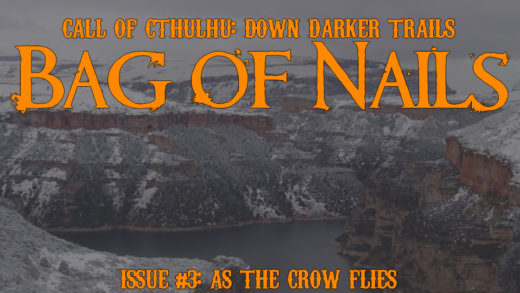Riddles and puzzles were once a staple of tabletop gaming, especially in dungeon crawls. But these conundrums are typically solved by the players, not their characters. How should a group manage the meta-gaming for puzzle solving? …Should they?

Last weekend one of my groups gathered virtually for our continued Pathfinder 2e campaign. In our dungeon delving the characters were presented with a logic puzzle which, if solved, would reward them with some sort of boon. Our discussions immediately shifted from in-character to an in-player discussion as we examined the brain-teaser and proposed various solutions.
It had been a while since I had been presented with a riddle in a ttrpg. At least of this nature. Most sessions include mysteries to be solved and unfold slowly; but these types of direct puzzles with a single solution had been more of a rarity for me as a player. So when one of our players deduced the solution to the puzzle the fact that it was the players not the characters solving the problem was apparent to me.
Much has been made of the inherent discrepancies between what characters can do that their players can’t (e.g. “you’re not as smart or charismatic as your character” or “playing dumb PCs when you’re smart”). Physical differences are weighed solely by the dice, but social and mental interactions often present a blurred line between character and player. The nature of role playing games means some meta-gaming and relying on dice and smarter and more eloquent people than I have covered the topic. Puzzles have been covered, too, but to a lesser extent. And, when it comes to these brain teasers, there are three overall options: the players solve the puzzle, the dice do the work, the puzzle is ignored.
When a scenario presents a puzzle, the expectation is that the players solve it and in a fairly limited amount of time. Combat in dungeon crawlers is typically expected to be the bulk of many sessions, but few want to spend more than five minutes agonizing over a riddle. So, not only does a require meta-gaming, there’s an expectation that it seems challenging on the surface but has a relatively simple solution. And, often, the translation of the player deduction to character deduction is either rewarded to the player’s character or the PCs are ignored.
For the session I had over the weekend, I suggested some of the meta-gaming was at least resolved by intelligence rolls and the character with the best roll was the one who presented the solution. This still involved players coming up with the solution but at least allowed the resolution to be in character. In our session’s case, the ranger’s player came up with the answer but it was the gladiator, who had seen her former merchant-masters playing the same sort of logic games, solved the puzzle.
Was that ideal? Probably not, but it seemed better than the alternative which was to let the dice solve the puzzle. If players don’t want to or simply can’t solve a puzzle—sometimes even obvious puzzles aren’t as clear when dealing with the theater of the mind, particular mindset, or any other number of variables—then it comes down to players making dice rolls. This can also lead to similar role-playing as above, based on the dice rolls for the solution.
If all the dice rolls fail, then what? Does the Game Master give additional hints and nudges to prompt the answer? If so, what’s the point of having the puzzle in place? In most situations, there is a singular answer for these types of puzzles, which hinders character play and creative thinking. When writing a scenario it’s easier to “wing it” and allow characters to break the puzzle with unique solutions. This isn’t as easy an option when using published scenarios, especially in a league-style environment.
As a person, I like brain teasers and riddles. As a player and a GM, I don’t want to be constrained to a single solution. I would rather be rewarded for role-playing a character than stepping out of character to solve a puzzle. If meta-gaming, allow ways to tie it back to character play. If players act in character to break the puzzle (maybe the bard charms the questioner or the barbarian breaks the puzzle), reward that action as if the players solved a riddle. Or, whenever possible, remove the puzzle and present a more open-ended problem.



Recent Comments